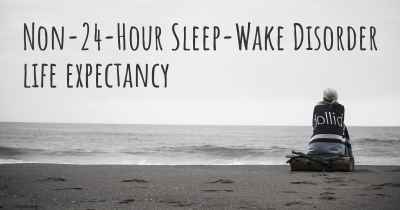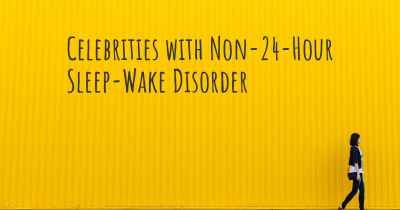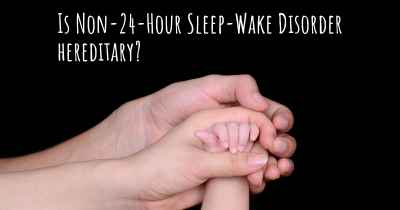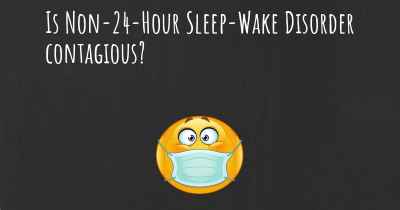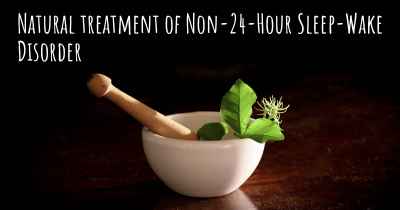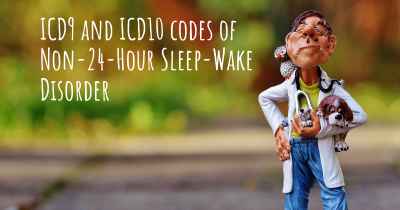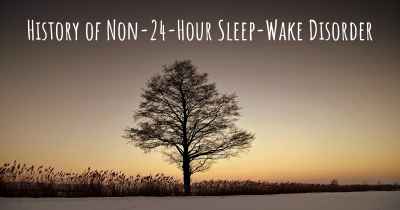Living with Non-24-Hour Sleep-Wake Disorder. How to live with Non-24-Hour Sleep-Wake Disorder?
Can you be happy living with Non-24-Hour Sleep-Wake Disorder? What do you have to do to be happy with Non-24-Hour Sleep-Wake Disorder? Living with Non-24-Hour Sleep-Wake Disorder can be difficult, but you have to fight to try to be happy. Have a look at things that other people have done to be happy with Non-24-Hour Sleep-Wake Disorder

Living with Non-24-Hour Sleep-Wake Disorder
Non-24-Hour Sleep-Wake Disorder (Non-24) is a rare circadian rhythm sleep disorder that affects the synchronization of the sleep-wake cycle with the 24-hour day. Individuals with Non-24 experience a constant shifting of their sleep pattern, making it challenging to maintain a regular daily routine. If you or someone you know is living with Non-24, here are some strategies that may help:
1. Establish a Consistent Schedule
Creating a regular sleep schedule is crucial for managing Non-24. Try to go to bed and wake up at the same time every day, even on weekends. This consistency helps regulate your body's internal clock and promotes better sleep quality.
2. Prioritize Light Exposure
Light exposure plays a significant role in regulating circadian rhythms. Expose yourself to bright light, preferably natural sunlight, during the day to help reset your internal clock. Spend time outdoors or near windows, and consider using light therapy devices specifically designed for circadian rhythm disorders.
3. Create a Sleep-Friendly Environment
Make your bedroom a sanctuary for sleep. Keep the room dark, quiet, and at a comfortable temperature. Consider using blackout curtains, earplugs, or white noise machines to minimize disruptions that may further disrupt your sleep-wake cycle.
4. Develop a Relaxing Bedtime Routine
Establishing a calming routine before bed can signal your body that it's time to sleep. Engage in activities such as reading a book, taking a warm bath, or practicing relaxation techniques like deep breathing or meditation. Avoid stimulating activities, bright screens, and caffeine close to bedtime.
5. Seek Professional Help
If you suspect you have Non-24, it's essential to consult a healthcare professional who specializes in sleep disorders. They can provide an accurate diagnosis, offer treatment options, and guide you through managing the condition effectively.
6. Maintain a Sleep Diary
Keeping a sleep diary can help you track your sleep patterns and identify any triggers or patterns associated with Non-24. Note down your sleep and wake times, as well as any factors that may have influenced your sleep quality. This information can be valuable during medical consultations.
7. Seek Support
Living with Non-24 can be challenging, both physically and emotionally. Reach out to support groups or online communities where you can connect with others who share similar experiences. Sharing your journey, challenges, and coping strategies can provide valuable insights and emotional support.
8. Explore Treatment Options
While there is no cure for Non-24, there are treatment options available that may help manage the symptoms. Your healthcare professional may recommend medications, light therapy, or a combination of both. It's important to discuss the potential benefits and risks of each treatment option with your doctor.
Living with Non-24 can be demanding, but with proper management strategies and support, it is possible to lead a fulfilling life. Remember, everyone's experience with Non-24 is unique, so finding what works best for you may require some trial and error. Stay positive, be patient, and seek professional guidance to navigate this sleep disorder effectively.
